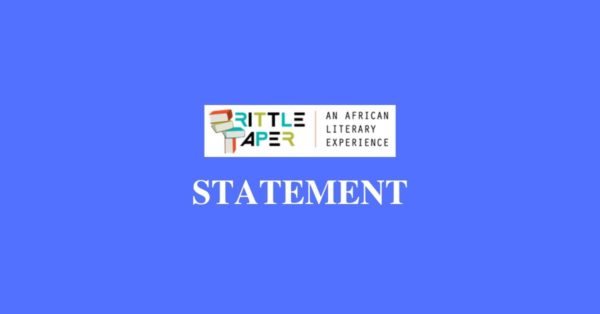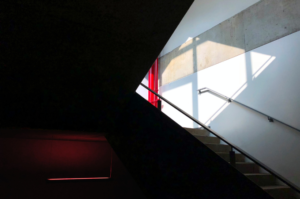
This statement is in response to a recent allegation by Mr. James Murua. While we regret any misunderstanding, we would like to firmly set the record straight.
On Tuesday, 3 September 2019, the Caine Prize removed a short story from its 2019 shortlist, for its author’s failure to attribute an original source. We were one of the first to receive suggestions of plagiarism concerning this story. We received a tip on Wednesday, 28 August 2019, highlighting its similarity to another short story. The tip was anonymous but not exclusive; we were informed that it was already circulating privately. Minutes later, we began communication with the author of the first short story in question. By Friday, 30 August, we were also in communication with Short Story Day Africa, who originally published the story, whose own prize the story won, and who shared a private statement with us. By Saturday, 31 August, we had reached out to the Caine Prize, whose impending public statement we were made aware of the day before, who then shared it with us on publication yesterday.
Statements from the two organisations appear in full in our report, the rest of which is made up of public information online duly linked to: the two short stories whose opening lines we shared for comparison, the interview in The Johannesburg Review of Books from where we shared a relevant question, which we also received, although we have been aware of its existence, as part of the tip. It is an adherence to factuality that our report contains all these, all of which also appear in Mr. Murua’s own report, published around six hours before ours.
The gap in publication was because, after the Caine Prize’s statement went public and was sent to us, we informed Short Story Day Africa that we would wait for theirs to be made public so we could collect all information in one report—and because we, too, wanted to say something given that the short story in question was also shortlisted for the 2018 Brittle Paper Award for Fiction. We wanted to wait for them because we consider it a responsibility, in sensitive cases like this, to make room for other organisations and people to speak first for themselves. Their statement was published around four hours later.
We were surprised that Mr. Murua, on publication, claimed that his report was an “exclusive”—when our deputy editor Otosirieze Obi-Young had, in the course of his own investigation, reached out to Mr. Murua as he did every party involved in the continent. Our different approaches to news coverage could not be more different as evidenced in our titles. His is “Exclusive: Caine Prize for African Writing withdraws Tochukwu Emmanuel Okafor’s short story.” Ours is “For Failure to Attribute an Original Source, the Caine Prize Removes Tochukwu Emmanuel Okafor’s ‘All Our Lives’ from 2019 Shortlist, as Short Story Day Africa Releases Statement on Intertextuality.” Because we understand how narratives take shape in the literary scene, we wanted to signal that, with the two prizes’ differing reactions to an omission we all acknowledge, there is a conversation to be had here. We consider our own resolution to not withdraw the story from our 2018 shortlist—citing its author’s inexperience absent intentional withholding of acknowledgement—a step into this conversation.
At Brittle Paper we take allegations of plagiarism seriously. We are also known for our celebratory approach to all aspects of African writing, including criticism, which we always make room for. When necessary, we link to and cite other sites, including Mr. Murua’s; we delight in linking to other sites partly because we want our readers to know as much as we can offer. We have done this for almost a decade and will continue to do it.
We hope that our explanation clears this baseless allegation.









COMMENTS -
Reader Interactions